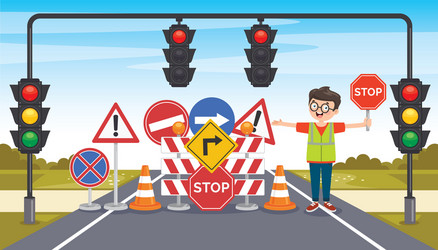Traffic law is any law that deals with the regulation of vehicles and how to drive them. In many countries, laws are passed by parliament, although in some cases, the government has delegated the authority to make such laws to local governments or courts. In other cases, rules may be made by regional or national governments.
Have you ever wondered what kind of laws affect your website traffic? If you haven’t, then you need to read this article now. I’ve spent years writing articles about website traffic, and it’s clear that most people don’t realize how important traffic law is to their online success.
You might think, “I’m not interested in traffic law; I just want to make money online.” Well, that’s a mistake. While you might not be interested in traffic law, you should be interested in the direction that affects your traffic.
This article is about traffic laws and how they affect you. It explains why it’s important to be aware of these laws and what to do if you get pulled over. It also explains the differences between red light cameras and police radar. Finally, it gives tips on how to avoid getting caught in a ticket trap.

What You Should Know About Traffic Laws
The Internet is a big place with many ways to get traffic. But, if you don’t know how the different types of traffic law work, you will be left in the dark regarding your website’s success. You could lose much of your online revenue if you’re unaware of the Internet’s traffic laws. I’ll explain the difference between organic and paid traffic, what traffic laws you need to know about, and the importance of traffic law.
How Your Website Can Be Penalized
Did you know that Google and other search engines have specific rules governing their algorithms? These rules constantly change, so you must stay ahead of the curve if you’re trying to rank on page one.
The problem is that there are always loopholes; you can be penalized if you fall into one. The good news is that you can avoid this by following traffic law. Here are five types of penalties that you need to know about.
Why You Should Get An SSL Certificate
You probably know that SSL certificates secure all data sent over the Internet. But did you know that you can get an SSL certificate for free? If you use a shared I.P. address, you already use an SSL certificate.
But what if you use a different I.P. address each time you go online? Then you’re probably missing out on the best opportunity to increase your website traffic. You don’t need a fancy certificate, either. You can get a simple, free certificate from Let’s Encrypt to help your site rank higher in the SERPs.
A simple, free certificate from Let’s Encrypt will help your site rank higher in the SERPs.
Traffic law for Internet marketers
As an online marketer, you’re bound by a series of laws. These laws protect consumers’ rights and prevent malicious online behavior.
While this sounds good, it’s also a bit confusing. What does this mean for us?
To start, here are the ten most important traffic laws for marketers:
- Google’s Webmaster Guidelines
- Google’s Privacy Policy
- Facebook’s Data Use Policy
- Google’s Terms of Service
- Google’s Robots Exclusion Standard
- Google’s No-follow attribute
- Facebook’s Data Use Policy
- Twitter’s User Agreement
- YouTube’s Content Guidelines
- LinkedIn’s Data Use Policy
Each one of these has a direct impact on how your website is ranked on Google.
How to Fix Your Traffic Law Issues
Traffic law is the set of laws that govern how people access websites. Various organizations create these laws, including the U.S. Federal Communications Commission, the Internet Corporation for Assigned Names and Numbers, and the Federal Trade Commission,
While many of these laws may seem unimportant, they affect your ability to generate traffic. For example, one of the main traffic laws is the anti-spam law, which requires websites to prevent email spam. Many other laws affect website traffic, including the CDA, CAN-SPAM, and the DMCA. The bottom line is that if you want to improve your website traffic, you must understand the laws governing it.
Frequently Asked Questions
Q: Do you know any traffic rules?
A: Yes, when you drive in Los Angeles, they say don’t go over 30 miles per hour, which is false. When driving in New York City, they say to stop at red lights even if they go green. There are so many traffic laws in L.A., so I always know the traffic rules when driving.
Q: Have you ever been involved in a car accident?
A: I was in a car accident once, but luckily it wasn’t bad.
Q: Is it safe to cross the street in L.A.?
A: In the city, you must be careful and watch for cars.
Q: Are there bike lanes on the street where you live?
A: In my neighborhood, there are some bike lanes,
Top Myths About
- Traffic laws are there to protect you from yourself!
- You cannot be charged with a crime if you are not breaking traffic laws,
- If you are accused of a crime.
Conclusion
I’m sure you’re aware that there are laws governing traffic. Some of them you might know already, but others you probably don’t. A law governs everything you do on the road, whether in Australia, Canada, the USA, or elsewhere. In this article, I will cover the most important traffic laws, how they apply to you, and how you can get caught if you break the law.














